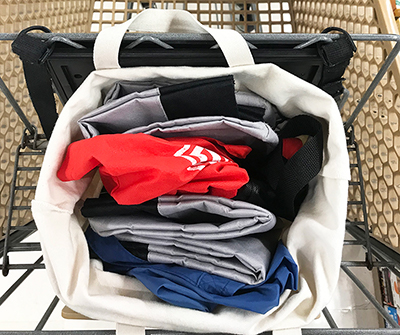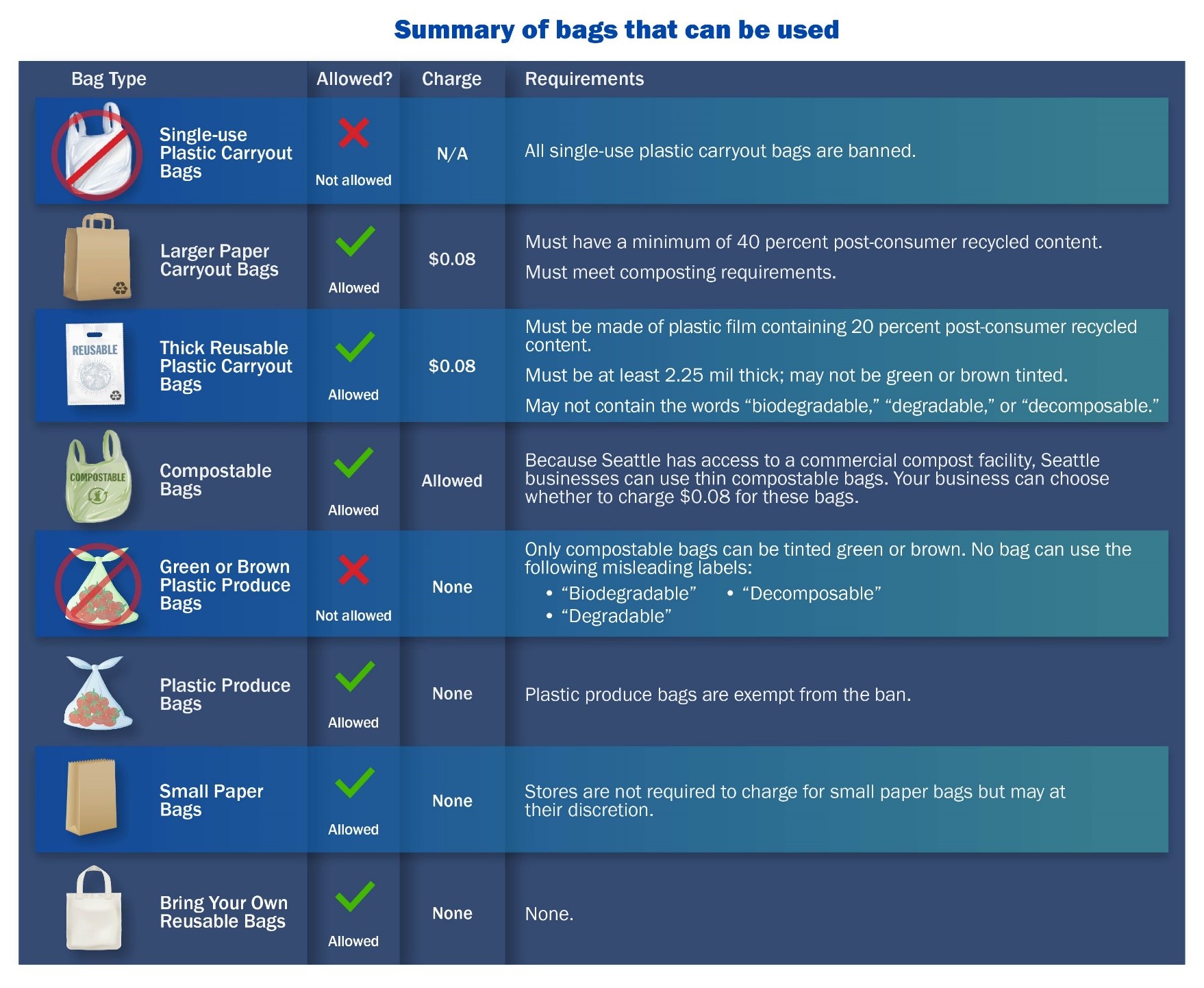Washington’s ban on single-use plastic bags goes into effect Friday, Oct. 1. The law forbids food service businesses, restaurants, retail, small and temporary vendors, and grocery stores from providing single-use plastic carryout bags to customers.
Customers are encouraged to bring their own reusable bags, but may purchase a compliant paper or reusable bag from the merchant. The law requires merchants to charge at least 8 cents per bag to help them recover the costs of the more durable – and reusable – compliant bags and as incentive for customers to bring their own bags.
The 8-cent-charge is not a tax. It is a sale kept entirely by the merchant.
Food banks and pantries are not required to charge their customers for compliant bags. Individuals receiving food stamps, WIC (Women, Infants, Children), SNAP (Supplemental Nutritional Assistance Program), or other government food assistance programs are not subject to the 8-cent charge.
Single-use plastic exemptions
In order for business owners to comply, they must first understand what bags are allowable and what bags are prohibited under the law.
BYOB – bring your own bag
Investing in reusable bags to carry out groceries and food from restaurants helps reduce waste and the degradation of our environment, but it is important to keep reusable bags clean and in good condition.
“The businesses this law affects are required to allow customers to use their own bags,” said Laurie Davies, Ecology’s Solid Waste Management Program Manager. “If a merchant doesn’t want its employees handling customers’ reusable bags, it can implement a policy requiring them to bag their own purchases when customers bring their own.”
Public can report violations
Enforcement of the ban relies on the public to report observations of non-compliance. Beginning Oct. 1, anyone may submit an observation by using the online reporting form on Ecology’s Bag Ban website. Ecology will use the information provided by the public to contact businesses, determine their level of non-compliance, and ensure understanding of the new law. Initial outreach will focus on education. Repeated non-compliance may result in penalties.
Outreach toolkits available in 17 languages
Ecology developed an outreach toolkit in 17 languages to help inform merchants, their staff, and customers about the new law. The public is encouraged share the toolkit widely. It includes flyers, bring-your-own-bag and point-of-sale signs, and web graphics, and is downloadable in PDF and InDesign formats.
The problem with plastic bags
Plastic bags are a source of pollution that threatens human health, wildlife, and the environment. They are also a major contaminant in Washington’s recycling system that clog sorting machines and put worker safety at risk. Reducing their use will protect the state’s rivers and streams, help its recycling system run more efficiently, and contribute to a growing culture of waste reduction and reuse.
Visit www.ecology.wa.gov/bagban for more information, tools and resources, and a complete listing of compliance requirements for Washington’s statewide ban on single-use plastic bags.



